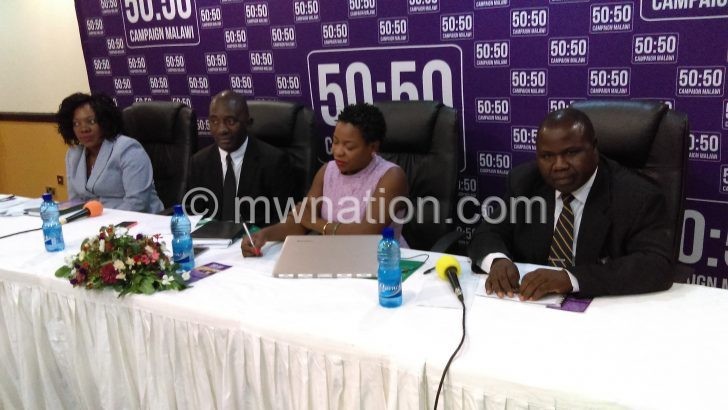The highway to equal representation
While people may argue that women cannot lead for whatever reason, the 50:50 campaign thinks otherwise.
Campaigners are geared at sending more women to Parliament despite all the talks about women pulling each other down, social and cultural norms, stereotypes and prejudices defining the roles of women in society.

There are currently 32 female legislators, but they anticipate the figure to rise after the May 2019 Tripartite Elections.
During a 50:50 campaign public debate in Blantyre recently, one of the patrons, Faustace Chirwa observed that it might be an uphill climb if society continues to perceive 60-year-old women contesting for parliamentary seats as grannies who should be taking care of grandchildren, but consider it fine for men of the same age.
She said pointed political will would help push more women into political leadership positions.
“There was once the issue of having 28 additional seats reserved for women in Parliament, but it was never followed through,” she said.
Virginia Nyalo from the Federation of Disability Organisations in Malawi (Fedoma) agreed that having a quota would be useful for the efforts.
“And women with disabilities need special consideration in these efforts because they are at a double disadvantage. People say mean things sometimes. With my disability for instance, some might say; ‘how will a person with disability bring development to her constituency?’” she said.
Women’s Legal Resource Centre’s executive director, Maggie Kathewera-Banda noted that when younger, girls are often given dolls to play with and that gives them a nurturing spirit and makes them softer.
“Apart from that, the things we say to boys and girls tend to make boys more confident; and differences are noticeable when they grow up. So, we need to build girls’ confidence while they are still young,” she said.
Kathewera-Banda further noted that men often solicit ideas from women, implement them and get the credit.
Action Aid Malawi (AAM) executive director Grace Malera said the country is progressing towards the 50:50 target.
She said from 5.4 percent female legislators in 1994, the figure rose to nine percent in 1999, then to 15 percent in 2004 and 22.3 percent in 2009. However, the figure declined in the 2014 Tripartite Elections.
“The steady rising is a milestone considering the culture and the hindering factors that we work with. So, come 2019, we will increase further on the percentages, steadily moving towards the target. By all means it’s very achievable. There are currently 32 very progressive women legislators and we are profiling the works they are doing. So, the efforts have been there, they have born fruits and we are building on them to achieve more,” said Malera.





